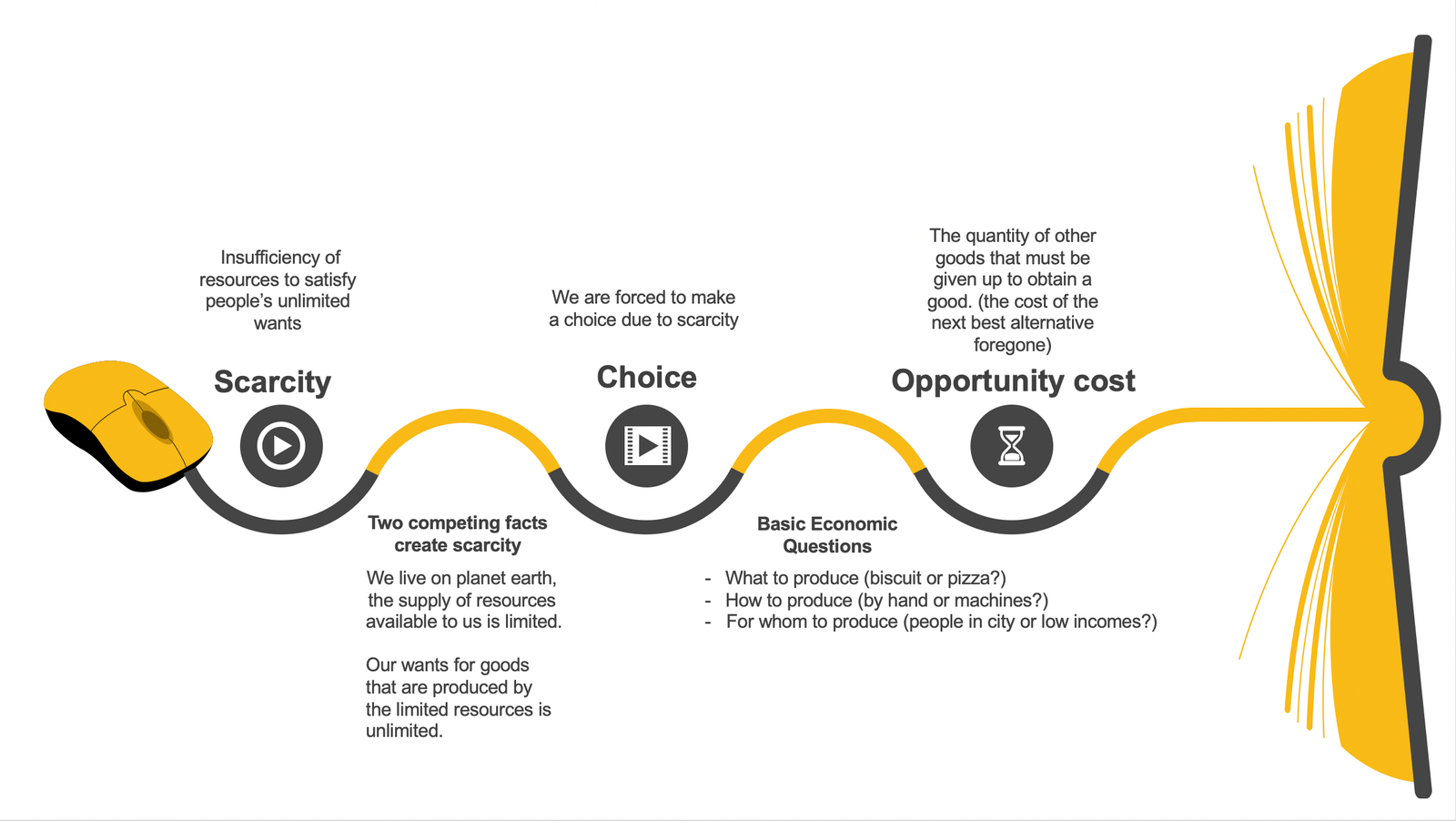Curriculum
1.1 Scarcity, choice and opportunity cost
1.1.1 Fundamental economic problem of scarcity
0/21.1.2 Need to make choices at all levels (individuals, firms, governments)
0/21.1.3 Nature and definition of opportunity cost, arising from choices
0/21.1.4 Basic questions of resource allocation
0/2
Text lesson
Opportunity cost and Choice

Scarcity forces individuals, businesses, and governments to make choices because resources are limited while wants are unlimited. When a choice is made, an alternative must be sacrificed, leading to an opportunity cost—the next best alternative forgone. For example, if a government allocates more funds to healthcare, it may have to reduce spending on education. This concept highlights the trade-offs involved in decision-making and the need for efficient resource allocation to maximize benefits.